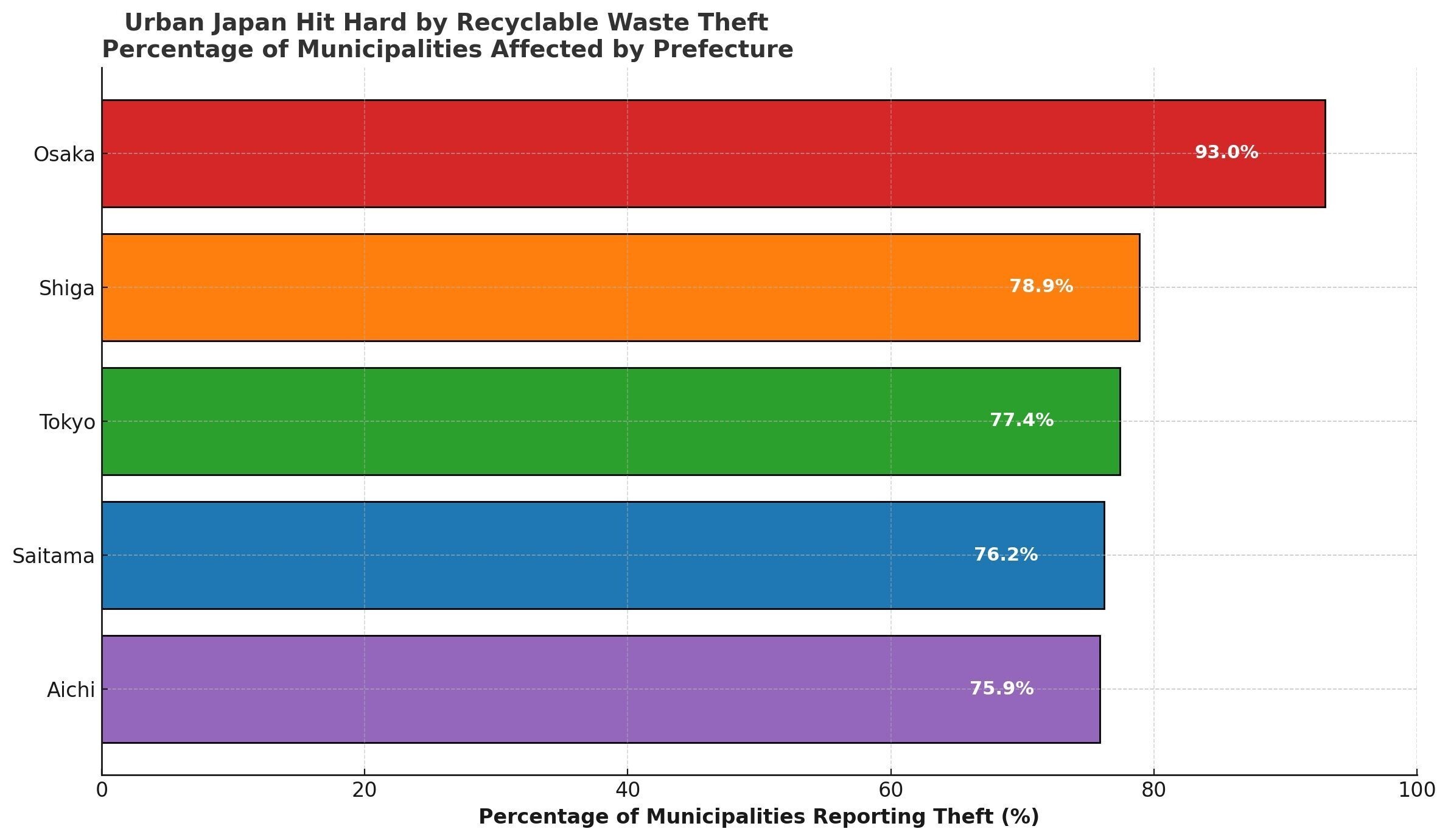

In a quiet alley in Fukuoka’s Minami Ward, what began as a routine garbage patrol turned into a tense showdown. “You’re not allowed to take that!” howled a Fukuoka city employee, catching a man red-handed with a bag of non-burnable waste stuffed with aluminium cans. The man lunged, shoving the official and trying to flee in a small car. After a brief scuffle, two city workers managed to pin him down and hand him over to the police. His backseat? Crammed with five bags of stolen aluminium cans.

This wasn’t his first offence. The man, in his 20s, had already received three warnings, both written and verbal. But the lure of aluminium had proven too strong.
From trash to treasure
Aluminium theft in Japan is no longer a petty nuisance. It is becoming an organised, nationwide problem. In Fukuoka alone, consultations about household waste theft surged from just 39 cases in FY 2020 to a staggering 620 cases in FY 2024, a more than 15-fold spike in just four years.
Across the country, the Ministry of the Environment reports that 729 out of 1,741 municipalities (41.9 per cent) have dealt with theft of recyclable waste. Urban centres are the worst hit:
The most coveted item in Japan’s modern waste wars? Empty aluminium cans.
Often left neatly separated for recycling, these cans disappear from bins before municipal trucks even arrive. In many cases, they’re resold to local scrap dealers for instant cash. “Some sellers bring in up to 60 kilograms of aluminium cans at a time,” one Fukuoka waste management company revealed.
 Events
Events
 e-Magazines
e-Magazines
 Reports
Reports
Responses








